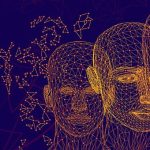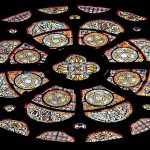How ought I to act and why? How should we organize our political institutions? What is reality really like? Is it all just atoms in the void, or is there some transcendent reality? Ultimately, what is the nature of the human person? These are questions of ethics, politics, metaphysics, and human nature. The world’s greatest minds – philosophers, literary authors, theologians – have left us a patrimony, as it were, of thinking about these questions.
The goal of this seminar series is to explore this patrimony and ask the question: What does this have to do with me and how I ought to live? In the Fall semester, we will explore texts from Antiquity and in the Spring, we will look at texts from Modernity, both broadly understood. We will focus the academic year on one theme and address other themes and texts from Antiquity and Modernity in future years.
For the Fall 2022-Spring 2023 academic year our focus will be on God, specifically the view that claims that God is all-powerful, all-knowing, all-good, completely transcendent and, ultimately, a person. This view of God has been anticipated by the rational arguments of pagan philosophers. A philosophical account of such a God has been shared by Christians, Muslims, and Jews in the middle ages, despite their very real theological differences. This view has, of course, been challenged in various ways by philosophers ancient and modern.
In the Spring we’ll explore some crucial primary texts that pertain to such philosophical accounts in Modernity. We’ll begin with selections from Blaise Pascal’s (1623-1662) Pensees , in particular his famous argument that, rationally speaking, one ought to wager that God exists. Next, we’ll shift our focus to Immanuel Kant (1724-1804), who argued that knowledge of God is outside of the realm of possibilities of human knowledge. In this sense, Kant is providing a sophisticated objection to traditional arguments for God’s existence. And yet, Kant urged that God was a requirement for making sense of morality. Next, we’ll look at Friedrich Nietzsche’s (1844-1900) influential claim that “God is dead,” as well as his trenchant critiques of traditional morality, especially that found in the Judeo-Christian tradition. We’ll finish with selections from Fyodor Dostoevsky (1821-1881), who argued that only God as understood by ordinary believers–he has Orthodox Russian peasants in mind–can help us make sense of the realities of deep human suffering.
All undergraduate, graduate, and medical students are welcome.
Email jprather@houstoninstitute.org to RSVP.



